|
A wave of anger was ignited when two top French doctors said on television that coronavirus vaccines should be tested on poor Africans. They later apologised. The reaction to the comment was understandable given that it was a reminder of past unethical medical practices in African countries. Gale Ure puts the issue into perspective, and concludes that it’s essential for African countries to be part of the search for a coronavirus vaccine – with the proviso that ethical codes are enforced.
Australian politicians are calling for a global inquiry into the origins of coronavirus. This would of course involve close scrutiny of China, given that the first case was reported in the Chinese city of Wuhan. But China almost certainly won't cooperate with any investigation. Graeme Smith explains why this is the case.
|

Modern day research and clinical trials are highly regulated.
Getty Images
Gale Ure, University of the Witwatersrand
To refuse inclusion would prevent Africa’s researchers from being significant players in the universal fight against the virus.
|
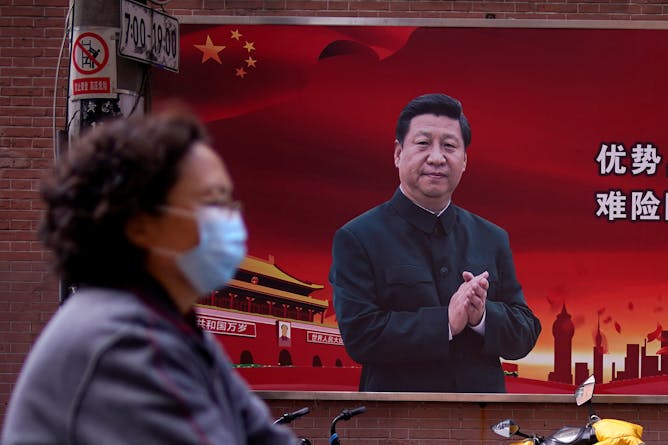
Aly Song/Reuters
Graeme Smith, Australian National University
Australia's call for an inquiry into the origins of the pandemic has been met with a rebuke from Beijing. China is ramping up its own narrative about the virus, making greater transparency impossible.
|
COVID-19
|

Yaprak Gürsoy, Aston University
The show of compassion is part of an attempt by President Recep Tayyip Erdoğan to revamp Turkey's international status.
| |

Robin R. Murphy, Texas A&M University ; Justin Adams, Florida State University; Vignesh Babu Manjunath Gandudi, Texas A&M University
Robots are helping health care workers and public safety officials more safely and quickly treat coronavirus patients and contain the pandemic. They have something in common: They're tried and tested.
|

Katherine Marshall, Georgetown University
Given that some people look to religious authorities not health officials in times of crisis, faith leaders can promote hand-washing and social distancing to slow the spread of coronavirus.
| |
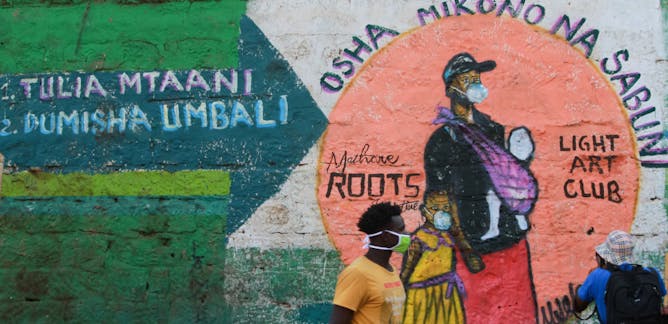
Fred Andayi, Kenya Medical Research Institute
In Kenya, the Spanish flu caused various forms of social and economic disruption, ranging from social distancing to the suspension of nonessential services and widespread food shortages.
|
|
|
Business and Economy
|
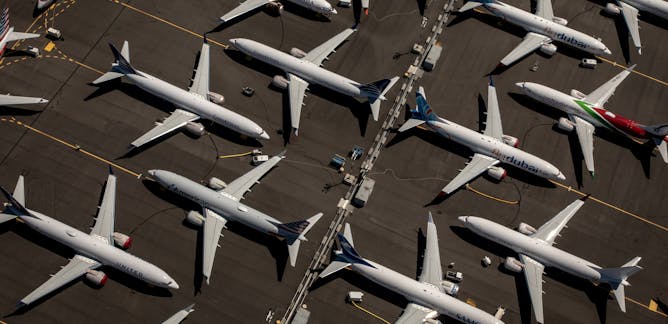
Darren Ellis, Cranfield University; Jorge Guira, University of Reading; Roger Tyers, University of Southampton
The airline industry has faced many crises before. But these pale in comparison to the economic hit that airlines are currently facing.
| |
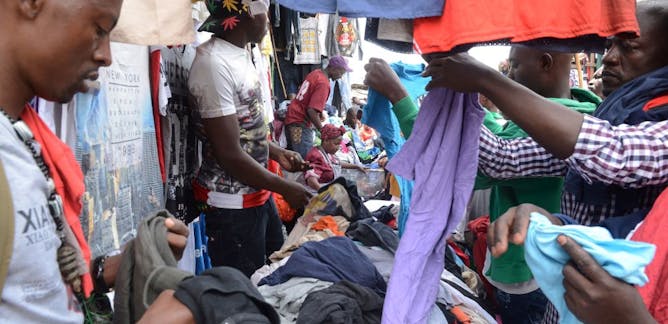
Dan Banik, University of Oslo
There are significant economic and social pull factors behind the popularity of used clothing.
|
|
|
En Français
|
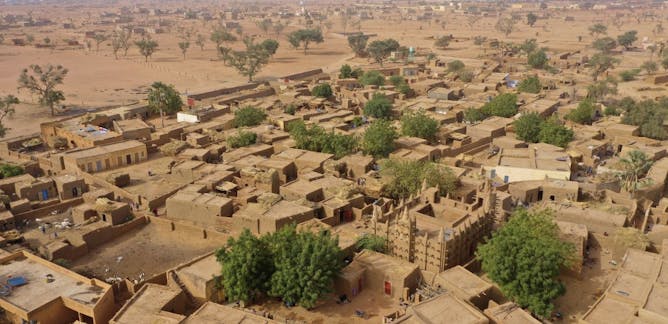
Stéphanie Leyronas, Agence française de développement (AFD); Emeline Baudet, Agence française de développement (AFD); Mathieu Boche, Agence française de développement (AFD)
Ce n’est pas l’ethnie qui est à la racine des conflits contemporains, mais plutôt la difficile coexistence de différentes légitimités dans la gestion et les modes d’accès à la terre.
| |

Christina Nikitopoulos, University of Technology Sydney; Warren Hogan, University of Technology Sydney
La crise économique mondiale et la saturation des capacités de stockage américaines expliquent pourquoi les prix sont entrés en territoire négatif en début de semaine.
|
|
|